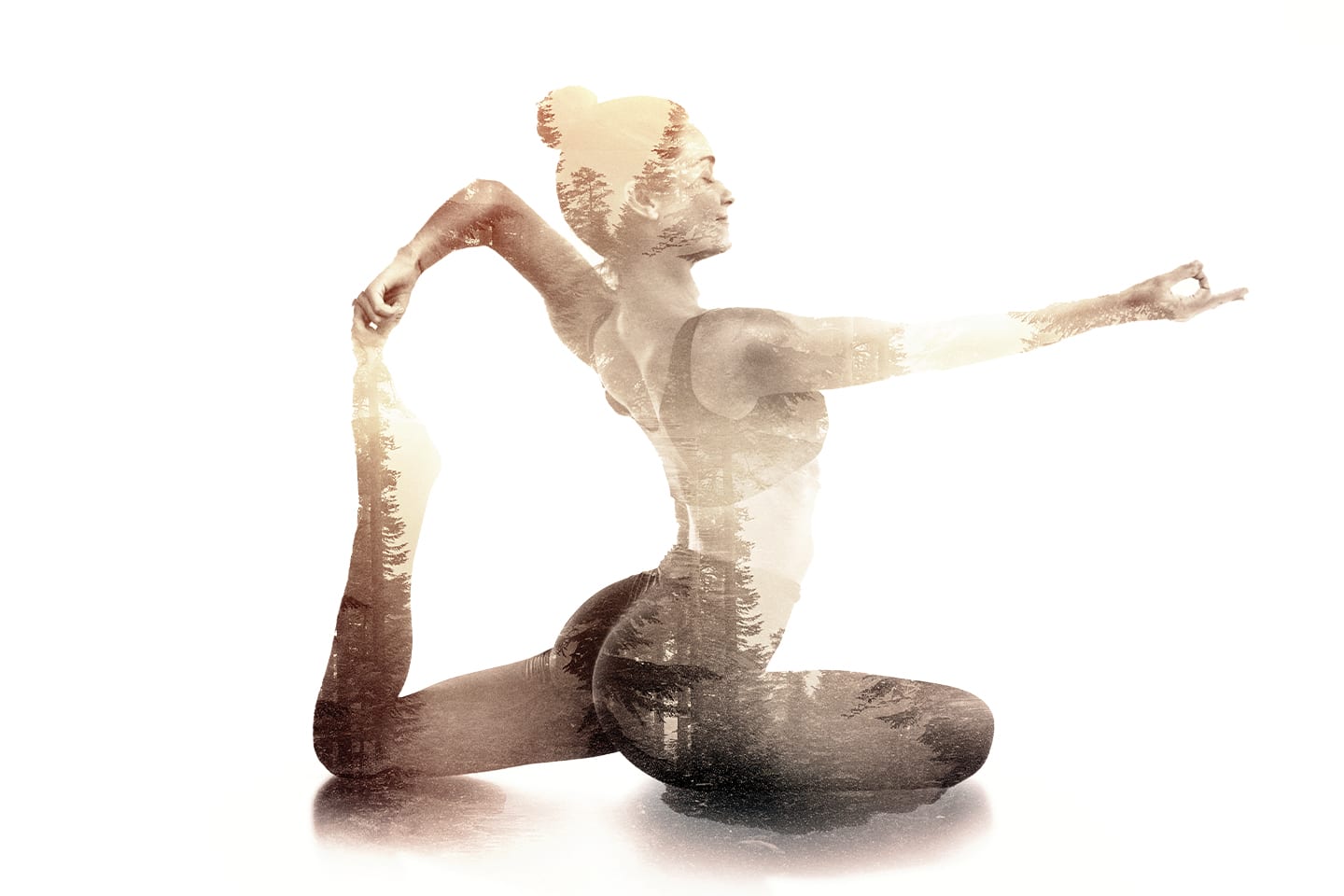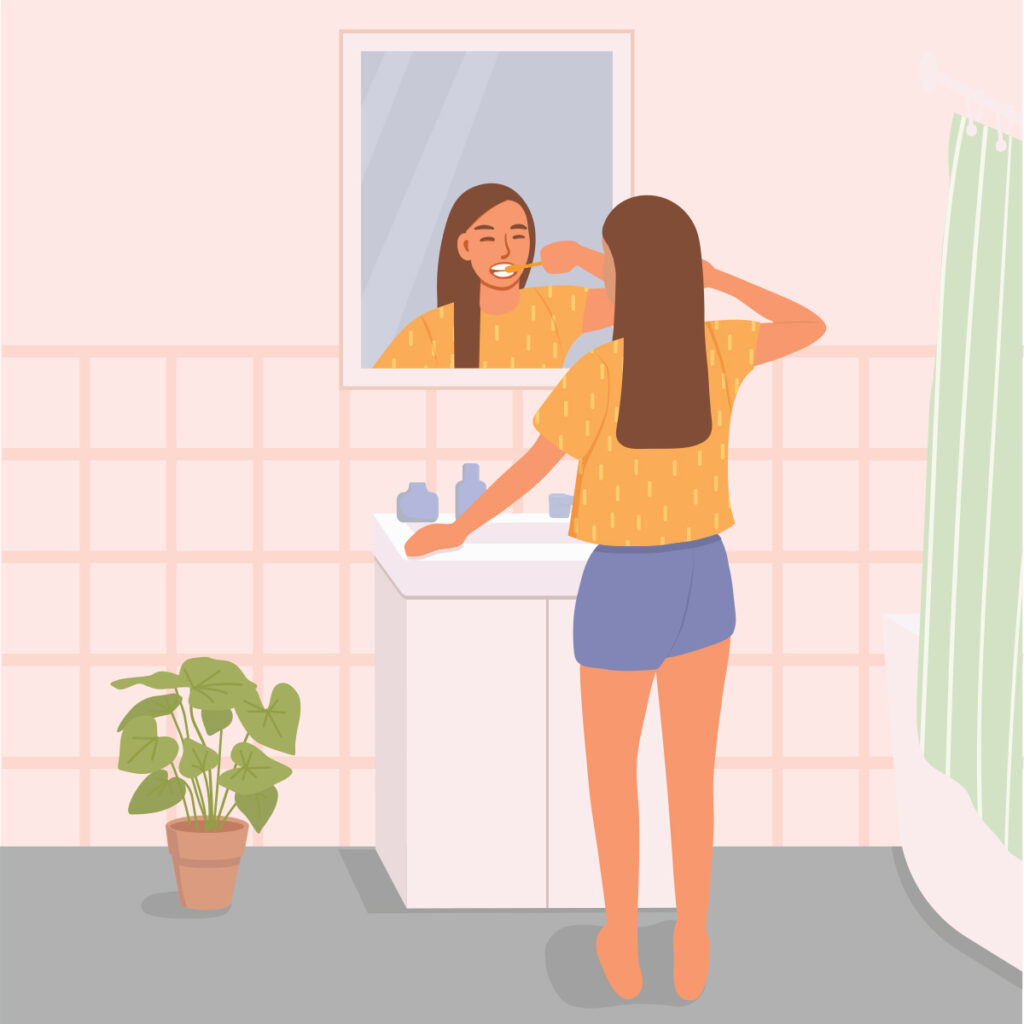Your Questions, Answered
Anxiety and losing sleep often go hand in hand. For those who experience both, it can be a bit of a “chicken or the egg” situation, as either can cause the other. Lack of adequate sleep can cause poor mental health, and in turn, anxiety can prevent you from getting proper sleep. However, no matter the cause, there are steps you can take to both reduce your anxiety and return to a healthy sleeping routine. Here, healthcare providers answer six questions about this common issue.
By Anna Hill

Licensed Professional Counselor,
Hamilton Physician Group – Behavioral Health
Does anxiety cause sleep deprivation, or vice versa? Or both?
The answer here is both – either can occur. There are numerous health conditions that can be linked to lack of sleep, some of which include arthritis, asthma, acid reflux, abnormal thyroid function, and dementia. Sleep deprivation may also be simply a result of your lifestyle – maybe you work long hours every week, have an odd schedule, or a new baby is keeping you up at night. Sleep deprivation in these scenarios can certainly trigger an anxiety response. Kathy Hilbert, a clinical mental health counselor with Roots Counseling Center, further explains, “Sleep deprivation can also be a symptom of mental health conditions such as anxiety and depression. If you are experiencing intense levels of anxiety, your body produces adrenaline in response to a perceived or actual threat in order to prepare your body for the fight/flight/freeze response. As you can imagine, this mental and physical state is not conducive to sleep.” However, if disrupted sleep predates the anxiety you’ve begun to experience, it is likely that the lack of sleep is causing the anxiety, and not vice versa.

Clinical Mental Health Counselor,
Roots Counseling Center
How can sleep deprivation affect your mental and physical health?
Unfortunately, many people take a good night’s sleep for granted when it comes to their health. Sleep is important in that it gives your brain downtime to recover from your day and to prepare for the next one. Not getting enough sleep can affect many different aspects of your daily routine; in fact, according to Michael W. Stein, a licensed professional counselor with Hamilton Physician Group – Behavioral Health, “Decreased sleep can contribute to stress, and stress can contribute to the hormonal release of cortisol, which is an inflammatory hormone with negative health consequences. Decreased sleep can affect your ability to concentrate and focus your thoughts, as well as increase confusion and diminish short-term memory.” Furthermore, depriving your body of sleep also deprives it of the opportunity to repair itself on a cellular level – some evidence even suggests that this can lead to lowered immune system function and a heightened risk of heart attack or stroke.
How can anxiety affect your health?
Persisting anxiety and chronic stress can have a variety of effects on the rest of your health, mental and physical. Heightened, enduring anxiety can lead to depression and even suicidal ideation, which can sometimes cause people to turn to negative coping behaviors such as drinking, misuse of drugs, unhealthy eating habits, and inactivity, all of which can undermine your physical health. Hilbert adds that anxiety can also more directly affect your body, saying, “Some people who struggle with anxiety can experience panic attacks, which are intense, somatic experiences brought on by our brain’s hyper-response to a perceived threat.” Lasting anxiety can also lead to tension headaches and other illnesses.

What are some ways to reduce or combat anxiety?
One of the first steps toward managing your anxiety is recognizing that it is in fact a condition that’s affecting you, whether that be through loss of sleep, trouble focusing at work, racing thoughts, or other symptoms. Thankfully, there are many techniques that you can try to reduce your overall anxiety levels. Some of these might include activities such as meditation, visualization, exercise, or working to control your breathing. Another common technique involves distraction and re-centering your focus on things that you can control. Stein explains, “Relaxation breathing techniques distract a person from the stimuli that may be causing the anxiety. This refocusing provides a sense of control over a situation that may seem out of control.” According to Stein, the goal of these techniques is for the person to manage their anxiety, rather than their anxiety controlling them.
What are some signs that someone might be experiencing an anxiety disorder, instead of occasional situational anxiety? Is the fact that it affects someone’s sleep an indicator?
In day-to-day life, most people will experience anxiety in stressful situations – it’s incredibly common, and part of being human. However, Hilbert explains, “When symptoms are enduring and negatively impact multiple domains of your life, such as home, work, physical health, and relationships, and you are distressed as a result, it may be beneficial to consult a therapist to assess whether a diagnosis of an anxiety disorder is appropriate.” Anxiety disorders interfere with your daily life, and this could include a lack of sleep, though it should be noted a lack of sleep isn’t necessarily a surefire indicator of an anxiety disorder. If you’re unsure, Hilbert advises that you not only seek medical evaluation in order to rule out any underlying medical conditions and gain some clarity on what’s affecting you, but also consider mental health therapy to assess and potentially treat your anxiety.

If anxiety is keeping someone awake at night, what can they do to get better sleep?
Outside of seeking treatment or counseling to manage your anxiety, there are several strategies that can be used to encourage better sleep. According to Stein, a healthy sleep environment can be key to improving your sleep routine. “We know that environmental factors affect the quality of sleep, such as random noises or intermittent light breaking the sleep cycle,” he says. “Once these barriers to the sleep experience are identified, we can modify the sleep environment to potentially enhance the sleep experience.” Techniques such as progressive muscle relaxation might also improve your night’s sleep. Research indicates that intentionally developing a bedtime routine, which involves a combination of different tasks done nightly before your head hits the pillow, can help prepare you for more restful sleep. Such a routine might include limiting screen time before bed, taking a warm shower just before going to sleep, or going to sleep around the same time each night.
Anxiety and loss of sleep can take a toll on your day-to-day life, but luckily, there are ways to combat it. Whether it be mindfulness about your mental and physical routines, or reaching out for professional help, there’s a path for you when it comes to seeking a calmer mind and more restful sleep. HS




